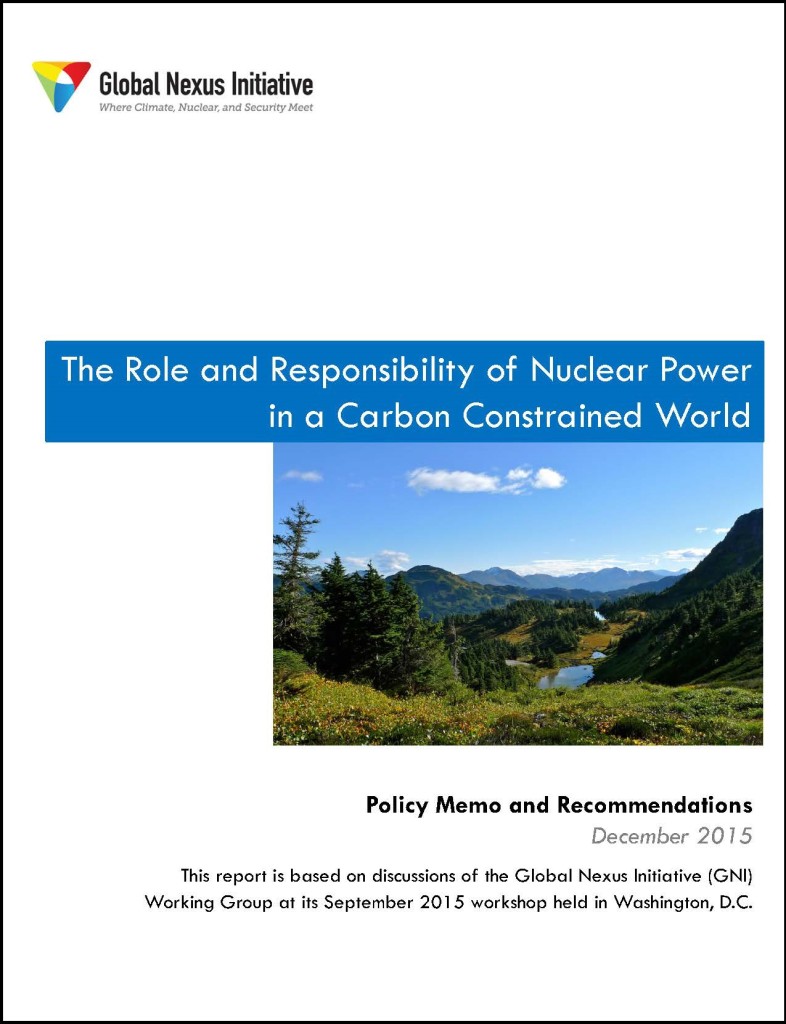
The Role and Responsibility of Nuclear Power in a Carbon Constrained World
Findings and Recommendations
- Governments, organizations, and individuals concerned with rising concentrations of greenhouse gases agree that a portfolio of technologies will be required to decarbonize the energy system. No single approach will be adequate to achieve the emission reductions necessary to limit future temperature increases. Nuclear power currently is making a significant contribution to meeting global energy and climate objectives, providing 33 percent of emission-free electricity generation worldwide which avoids 2.5 billion metric tons of carbon dioxide emissions per year. Most energy and climate models indicate that this contribution could grow, and under some scenarios, its expansion is necessary. However, nuclear power is not an important element in most of the commitments that nations have submitted to the United Nations Framework Convention on Climate Change (UNFCCC) in advance of the Conference of the Parties (COP-21) meeting in Paris.
The participants and supporters of the UNFCCC process should acknowledge the existing and potential contribution of nuclear power as part of a suite of technologies that can address increasing levels of greenhouse gas concentrations in the atmosphere. Also, public policies should be developed that recognize the unique value of nuclear power and that will discourage the premature retirement of existing nuclear facilities and replacement with higher emitting alternatives.
- Nuclear power expansion in the developed world faces significant economic and policy barriers including reactor cost, siting, waste disposal, governance, and public opinion. These challenges have historical and policy origins that, in the face of a global climate challenge, need to be reconsidered. These issues, in part, can be addressed through policy changes, aggressive leadership, confidence building measures, and new partnerships.
A review of nuclear policy issues is needed in light of climate goals and the growing demand for electricity. It should result in changes that enhance public support, safety, and security and achieve a significant reduction in greenhouse gas emissions. The nuclear industry and its related organizations should partner with civil society to develop common objectives and cooperation that can forthrightly address the value and concerns associated with nuclear power. Additional policy and partnership opportunities could include multi-national cooperation to support the development, demonstration, and coordinated licensing of advanced reactors, which offer benefits beyond the existing generation of power plants.
- Nuclear power is significantly growing in the developing world, particularly in Asia and to a lesser degree in the Middle East. Some African nations also have expressed interest in it. Some of these nations have little or no experience with nuclear regulation and operation, raising safety, security, and nonproliferation concerns. This regional shift is placing increasing demands and pressures on the current nuclear governance system.
The nuclear governance system must adapt to evolving circumstances and challenges by enhancing the capacity of the newcomer countries to fulfill their responsibilities for safety, security, and safeguards. The nuclear safety capacity building must start early. It also is necessary to address the weak links in the nuclear security regime, which lags the nuclear safety and safeguards systems in its effectiveness. These advancements should be augmented with improvements in nuclear education, training, and assistance. Together these enhancements will strengthen international confidence in the nuclear programs of all states.

